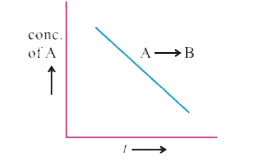The order of a reaction
A
can never be zero
B
can never be fraction
C
must be a whole number
D
can be an integer or a fraction or zero
Video Solution
Text Solution
The correct Answer is:D
Conceptual
|
Topper's Solved these Questions
- CHEMICAL KINETICS Book:NARAYNAChapter:CHEMICAL KINETICS Exercise:EXERCISE -1 (C.W) (RATE OF REACTION & FACTORS)
Explore 14 Videos
- CHEMICAL KINETICS Book:NARAYNAChapter:CHEMICAL KINETICS Exercise:EXERCISE -1 (C.W) (ORDER OF REACTION)
Explore 14 Videos
- CHEMICAL KINETICS Book:NARAYNAChapter:CHEMICAL KINETICS Exercise:CHECK YOUR GRASP
Explore 14 Videos
- CARBOXYLIC ACIDBook:NARAYNAChapter:CARBOXYLIC ACIDExercise:All Questions
Explore 288 Videos
- CHEMISTRY IN EVERYDAY LIFEBook:NARAYNAChapter:CHEMISTRY IN EVERYDAY LIFEExercise:ASSERTION & REASON TYPE QUESTIONS
Explore 10 Videos
Similar Questions
Knowledge Check
Which of the following statemen is /are correct about order of a reaction?
I. The order of a reaction can be a fractional number.
II. Order of a reaction is experimentally determined quantity.
III. The order of a reaction is always equal to the sum of the stoichimetric coefficients of reactants in the balanced chemical equation for a reaction.
IV. The order of a reaction is the sum of the powers of molar concentration of the reactants in the rate law expression.
Choose the correct option.AI, II and IIIBI, II and IVCII, III and IVDAll of the aboveAssertion (A) : The order of a reaction may be defined as the sum of the powers to which the concentration terms are raised in order to determine the rate of reaction gives the total order of reactions.
Reason (R) : The number of molecules whose concentrations determine the ratio of reaction at a given temperature is called order to the reaction.ABoth A and R are true and R is the correct explanation of ABBoth A and R are true but R is not a correct explanation of ACA is true but R is falseDA is false but R is trueWhich of the following is true for order of a reaction?
AIt is eqaul to the sum of exponents of the molar concentration of the reactants in the rate equationBIt is always a whole numberCIt is never zeroDIt can be determined theoretically
Write two differences between order of a reaction and molecularity of a reaction.
View SolutionFor a zero order reaction, The rate becomes double when the order of the reaction.
View Solution
What is the order of the reaction ?
View SolutionBy the overall order of a reaction , we mean
View SolutionIf the rate of the reaction is equal to the rate constant , the order of the reaction is
View Solution

